Blood and Gold tvc-8 Read online
Page 7
I was soon amazed to discover that they perceived themselves as serving Satan within a Divine Plan that held the Devil to be equal in power to the Christian God.
They did not know of the Mother and the Father, and understand, the shrine was in that very house, down, beneath the floor. Yet they could hear no inkling of the Divine Parents. They were far too young and too innocent. Indeed, their zeal and sincerity was enough to break one's heart.
But though deeply touched by their mishmash of Christian and Persian ideas, of their wild notions, and by their curious appearance of innocence, I was also horrified by the fact that this was a new religion among the blood drinkers, and they spoke of other adherents. They spoke of a cult.
The human in me was revolted; and the rational Roman was more confused and alarmed than I can express.
It was Pandora who quickly brought me to my senses and gave me to know that we must slaughter the whole band. Were we to let them go, others would come to us, and soon the Mother and Father might fall into their hands.
I, who had slain old pagan blood drinkers with ease, seemed somehow unable to obey her, perhaps because I realized for the first time that if we remained in Antioch, if we maintained our household and our lives, more and more blood drinkers would come and there would be no end to killing them in order to protect our fine secret. And my soul suddenly could not endure this possibility. Indeed I thought once more of death for myself and even for Those Who Must Be Kept.
We slaughtered the zealots. It was a simple thing to do for they were so young. It took only moments with torches and with our swords. We burnt them to ashes and then scattered those ashes as, I'm sure you know, must be done.
But after it was over, I lapsed into a terrible silence and for months would not leave the shrine. I abandoned Pandora for my own suffering.
I couldn't explain to her that I had foreseen a grim future, and when she had gone out to hunt the city or to do whatever amused her, I went to Akasha.
I went to my Queen. I knelt before her and I asked her what she meant for me to do.
"After all," I said, "these are your children, are they not? They come in new battalions and they don't know your name. They likened their fangs to those of serpents. They spoke of the Hebrew prophet Moses, holding up the serpent staff in the desert. They spoke of others who might come." No answer came from Akasha. No real answer was to come from Akasha for two thousand years. But I was only beginning my awful journey then. And all I knew in those anxious moments was that I had to conceal my prayers from Pandora, that I couldn't let her see me—Marius, the philosopher—on bended knee. I went on with my praying, I went on with my feverish worship.
And as always happens when one prays to an immobile thing, the light played upon the face of Akasha; the light gave some semblance of life.
Meantime, Pandora, as embittered by my silence as I was by Akasha's silence, became utterly distraught.
And one night she hurled at me a simple household insult, "Would that I were rid of them and rid of you."
She left the house and she did not return the next night or the night after that.
As you can see, she was merely playing the same game with me that I had played with her. She refused to be a witness to my hardness. But she could not understand how desperately I needed her presence, and even her vain pleas.
Oh, it was so shamefully selfish of me. It was such a needless disaster but powerfully angry with her, I took the irrevocable step of arranging for my departure from Antioch by day.
Indeed, by the light of the dim lamp, so as not to arouse my mortal agents, I gave orders for myself and Those Who Must Be Kept to be transported in three immense sarcophaghi to Rome by sea. I abandoned my Pandora. I took with me all that was mine and left her only the empty villa, with her own possessions strewn rather carelessly and insultingly around it. I left the only creature in the world who could have patience with me, who could give me understanding, and who had done so, no matter how often or how hard we had fought. I left the only being who knew what I was!
Of course I didn't know the consequences. I didn't realize that I would not find Pandora for hundreds of years. I didn't know that she would become a goddess in my mind, a being as powerful in my memory as Akasha was to me night after night.
You see, it was another lie, like unto the lie I've told about Akasha. I loved Pandora and I needed her. But in our verbal combat, I had always, no matter how emotional, played the role of the superior mind who was in no need of her seemingly irrational discourse and always evident affection. I remember the very night that I gave her the Dark Blood how she had argued with me. She said, "Don't make a religion of reason and logic. Because in the passage of time reason may fail you and when it does, you may find yourself taking refuge in madness." I was so offended by these words coming from the mouth of this beautiful woman whose eyes so entranced me that I could scarce follow her thoughts.
Yet in those months of silence, after we had slain the New Believers,
this was precisely what had happened. I had lapsed into a form of badness and refused to speak a word.
And only now can I admit the full folly of it, that my own weakness was unsupportable to me, and that I could not endure having her as the witness of the melancholy which shrouded my soul.
Even now, I cannot have her as a witness to my suffering. I live here alone, with Daniel. I speak to you because you are a new friend and can take from me fresh impressions and fresh suggestions. You don't look at me with old knowledge and old fear. But let me go on with my tale.
Our ship arrived at the port of Ostia in good order, and once we had been transported in three sarcophaghi to the city of Rome, I rose from my "grave," made arrangements for an expensive villa just outside the city walls, and arranged an underground shrine for Those Who Must Be Kept in the hills well away from the house.
A great guilt weighed me down that I had placed them at such a distance from the place in which I lived, read my books, and took to my crypt at night. After all, they had been within my very house in Antioch, though safely beneath it, and now they were some miles away.
But I wanted to live close to the great city, and indeed within a few short years, the walls of Rome were built out and around my house so that Rome enclosed it. I had a country villa in town.
It was no safe place for Those Who Must Be Kept. So it proved most wise that I had created their shrine well away from the burgeoning city, and settling into my villa, I played "a Roman gentleman" to those around me, the loving master of several simple-minded and gullible slaves. Now understand that I had been away from Rome for over two hundred years.
Glorying in the cultural riches of Antioch, a Roman city, yes, but an Eastern city, listening to her poets and teachers in the Forum, roaming her libraries by torchlight, I had been horrified by descriptions of the latest Roman Emperors who had disgraced the title altogether by their antics and inevitably been murdered by their bodyguards or their troops.
But I was far wrong that the Eternal City had fallen into degradation.
Great Emperors of the past hundred years there had been such as Hadrian and Marcus Aurelius, and Septimius Severus, and there had been an enormous number of monumental buildings added to the capital as well as a great increase of population. Not even a blood drinker such as myself could have inspected all of Rome's temples, amphitheaters and baths.
Indeed Rome was more than likely the largest and most impressive city in the world. Some two million people made up the populace, many of the plebs, as the poor were called, receiving a daily ration of corn and wine.
I yielded to the spell of the city immediately. And shutting out the horrors of the Imperial quarrels and continuous war along the frontiers I diverted myself by studying the intellectual and aesthetic handiwork of mankind as I've always done.
Of course I went immediately to play the hovering ghost about the town houses of my descendants, for I had kept some track of them, though never admitting it to Pandora, and I found
them to be good members of the old Senatorial class, striving desperately to maintain some order in government, while the army elevated Emperor after Emperor in a desperate attempt to secure power for this or that faction in this or that far-flung place.
It broke my heart actually to see these young men and women whom I knew to have come down from my uncles and aunts, from my nieces and nephews, and it was during this period that I broke my record of them forever, though why precisely I cannot say.
It was a time for me of breaking all ties. I had abandoned Pandora. I had put Those Who Must Be Kept at some remove from me, and now I came home one night, from spying upon a supper party at the house of one of my many descendants, and I took out of a wooden chest all the scrolls in which I had written the names of these young people, gleaned from letters to various agents, and I burnt them, feeling rather wise in my monstrosity, as though this would prevent me from further vanity and pain.
After that, I haunted the precincts of strangers to gain knowledge. With vampiric dexterity I slipped into shadowy gardens and listened at the open doorways of the dimly lighted villas as those inside talked softly over dinner or listened to the delicate music of a young boy accompanying himself with a lyre.
I found the old conservative Romans very touching, and though the libraries were not as good here as they had become in Antioch, I found much to read. There were of course schools of philosophy in Rome, and though they too were not as impressive as those in Antioch, I was interested in listening to what I could.
But understand, I did not really enter into the mortal world. I made no friendships with mortals. I did not converse with them. I only watched them, as I had always done in Antioch. I did not believe then could penetrate with any true success into their natural realm.
As for my blood thirst, I hunted furiously in Rome. I kept to the Evil Doer always, which was a simple matter, I can assure you, but I fed my hunger far more than I needed to feed it. I bared my fangs cruelly to those I killed. The huge population never left me hungry. I was more the blood drinker than ever in my existence up to that time.
It was a challenge to me to do it properly, to sink my teeth but once and cleanly, and to spill not a drop as I took the death along with the blood.
There was no need in such a place as Rome of those times to hide the bodies for fear of discovery. Sometimes I threw them in the Tiber. Sometimes I did nothing but leave them in the street. I loved particularly to kill in taverns which is something I like even now, as you know.
There is nothing like the long passage through the damp dark night, and then the sudden opening of the door of the tavern upon an entire little universe of light and warmth and singing and laughing humans. I found taverns very enticing indeed. Of course, all this ravening, this endless killing—it was on account of my grief for Pandora, and it was because I was alone. Who was there to restrain me? Who was there to outdo me? No one at all.
And understand, during the first few months, I might have written to her! There was surely a chance that she had remained in Antioch, in our house, waiting for me to come to my senses, but I did no such thing.
A fierce anger, the very anger I fight now, welled up in me, and it made me weak, as I've already told you. I couldn't do what I had to do—bring her back to me. And sometimes my loneliness pushed me to take three and four victims in a night, until I was spilling blood I couldn't drink. Sometimes in the early hours of the morning my rage was quieted, and I went back to my historical writing, something which I had begun in Antioch and never revealed to a single soul.
I described what I saw in Rome of progress or failure. I described the buildings in ponderous detail. But then there came nights when I thought that everything I'd written was useless. After all, what was the purpose? I could not enter these descriptions, these observations, these poems, these essays, into the mortal world!
They were contaminated in that they came from a blood drinker, a monster who slew humans for his own survival. There was no place for the poetry or history which had come from a greedy mind and heart. And so I began to destroy not only my fresh writings, but even the old essays which I had written in Antioch in the past. I took the scrolls out of the chests one by one and burnt them as I had burnt the records of my family. Or I merely kept them, locked up tight, and away from my eyes, so that nothing I'd written could spark in me anything new.
It was a great crisis of the soul. Then something happened which was totally unforeseen.
I came upon another blood drinker—indeed I came upon two of them in dark streets of the late night city as I was coming down a hill. The moon had gone behind the clouds at that moment, but naturally I could see quite perfectly with my preternatural eyes. The two creatures were approaching me rapidly with no knowledge that I stood against the wall, trying not to block their path.
At last the first of the pair lifted his head and I recognized the face at once. I knew the hawk nose and deep-set eyes. I knew the gaunt cheeks. In fact I recognized everything about him, the slope of his shoulders, his long blond hair, and even the hand that held the cloak at his throat.
This was Mael, the Druid priest who had long ago captured me and taken me prisoner, and fed me alive to the burnt and dying God of the Grove. This was Mael who had kept me in captivity for months as he prepared me for the Dark Magic. This was Mael, the pure of heart, and the fearless one, whom I had come to know so very well.
Who had made Mael a blood drinker? In what grove had Mael been consecrated to his old religion? Why was he not shut up in some oak tree in Gaul, there to preside over the feasts of his fellow Druids? Our eyes met, but I experienced no alarm. In fact, I had assessed his strength and found it wanting. He was as old as I was, yes, that was plain, but he had not drunk as I had from Akasha. I was by far the stronger. There was nothing he could do to me.
And so at this moment, I looked away and to the other blood drinker who was much taller, and infinitely stronger, and whose skin was a dark-brown color, surely from having been burnt in the Terrible Fire.
This one had a large face of rather agreeable and open features, with large questioning black eyes, a thick and well-proportioned mouth, and a head of wavy black hair. I looked back to this blondheaded one who had taken my mortal life with such religious conviction. It occurred to me that I could destroy him by ripping his head from his body, and by keeping possession of his head and then placing it somewhere in my garden where the sun would inevitably find it and burn it black. It occurred to me that I ought to do this, that this creature deserved no better. Yet there were other thoughts working in my mind.
I wanted to talk to this being. I wanted to know him. I wanted to know the other being with him, this brown-skinned blood drinker who stared at me with such a mixture of innocence and warmth. This blood drinker was much older. This blood drinker was like no being who had ever come at me in Antioch, crying for the Mother and Father. This being was an entirely new thing.
It was in this moment that I understood perhaps for the first time that anger was weak. Anger had robbed me of Pandora over a sentence of less than twenty words. Anger would rob me of Mael if I destroyed him. Also, I thought, I can always delay the murder. I can talk with Mael now. I can let my mind have this company it craves and I can always kill him later on. But I'm sure you know such reasoning is false, because once we grow to love a person we are not likely to want that person's death.
As these thoughts raced through my mind, words suddenly spilled from my lips.
"I'm Marius, don't you remember me?" I said. "You took me to the Grove of the Old God, you gave me to him, and I escaped." I was appalled at the hostility with which I'd spoken.
He cloaked his thoughts completely, and I couldn't tell whether he had known me by my appearance or not. He spoke quickly in Latin.
"Yes, you abandoned the grove. You abandoned all those who worshiped you. You took the power given you, and what did you leave for the Faithful of the Forest? What did you give back?"
"And you, my pr
ecious Druid priest," I said, "do you serve your old gods? Is that what has brought you to Rome?" My voice was quaking with anger, and I felt the weakness of it. I struggled to regain clarity and strength. "When I knew you, you were pure of heart. Seldom have I ever known any creature more deluded, more given over to comforts and illusions of religion as you were." I stopped. I had to check myself, and I did.
"The old religion is gone," he said furiously. "The Romans have taken even our most secret places. Their cities are everywhere. And thieving barbarians swoop down upon us from across the Danube. And the Christians, the Christians come into places where the Romans are not. There is no stopping the Christians."
His voice grew louder, even though it had taken on the tone of a whisper.
"But it was you, Marius," he said, "you, who corrupted me. It was you, Marius, who poisoned me, it was you who divided me from the Faithful of the Forest, you who gave me dreams of greater things!"
He was as angry as I was. He was trembling. And as often happens with two people who are quarreling, this anger produced a good calm in me. I was able to sink my enmity down into myself with that little resolve, You can always kill him later, and so I went on. The other creature looked quite surprised by all this and fascinated with an almost childlike expression on his face.
"What you're saying is nonsense," I answered. "I ought to destroy you. It would be an easy thing for me to do."
"Very well then, try," he answered.
The other one reached from behind and put his hand on that of Mael.
"No, listen to me, both of you," he said in a kindly rather deep voice. "Don't go on with this quarrel. However we came to the Dark Blood, either through lies or violence, it has made us immortal. Are we to be so ungrateful?"
"I'm not ungrateful," I said, "but I owe my debt to fate, not to Mael. Nevertheless, I'm lonely for your company. That's the truth of it. Come to my house. I'll never harm anyone who comes as a guest under my roof."

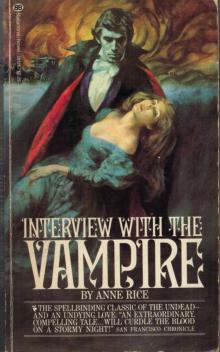 Interview with the Vampire
Interview with the Vampire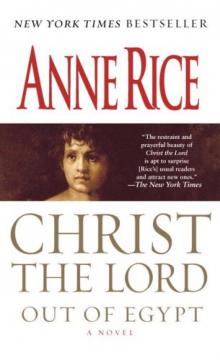 Christ the Lord: Out of Egypt
Christ the Lord: Out of Egypt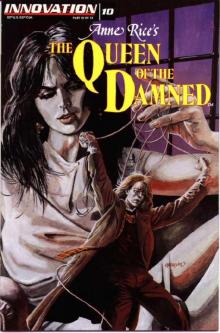 The Queen Of The Damned
The Queen Of The Damned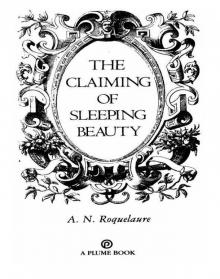 The Claiming of Sleeping Beauty
The Claiming of Sleeping Beauty Prince Lestat
Prince Lestat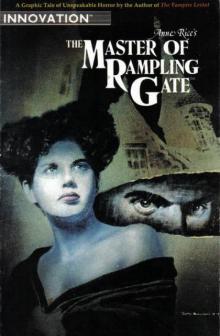 The Master of Rampling Gate
The Master of Rampling Gate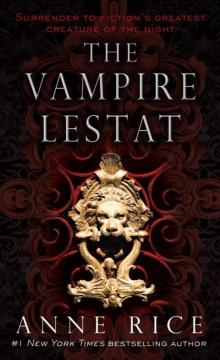 The Vampire Lestat
The Vampire Lestat Blood Canticle
Blood Canticle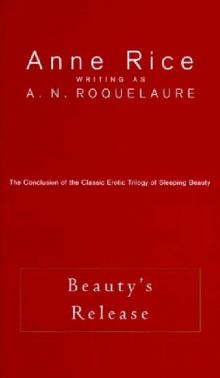 Beauty's Release
Beauty's Release Pandora
Pandora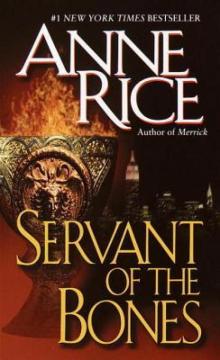 Servant of the Bones
Servant of the Bones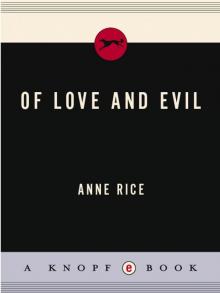 Of Love and Evil
Of Love and Evil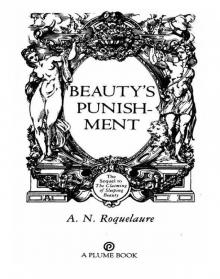 Beauty's Punishment
Beauty's Punishment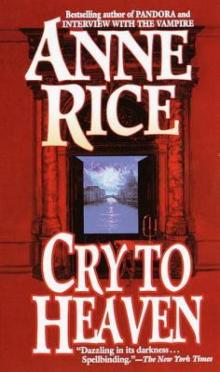 Cry to Heaven
Cry to Heaven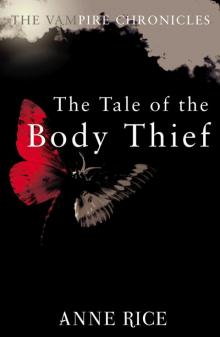 The Tale of the Body Thief
The Tale of the Body Thief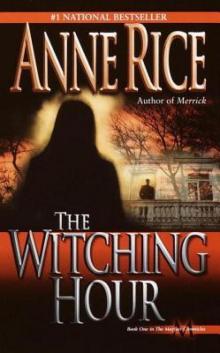 The Witching Hour
The Witching Hour Memnoch the Devil
Memnoch the Devil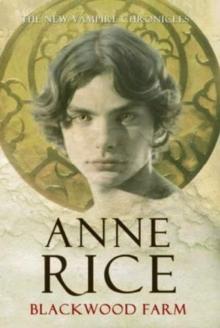 Blackwood Farm
Blackwood Farm Beauty's Kingdom
Beauty's Kingdom Belinda
Belinda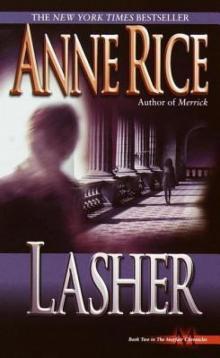 Lasher
Lasher Vittorio, the Vampire
Vittorio, the Vampire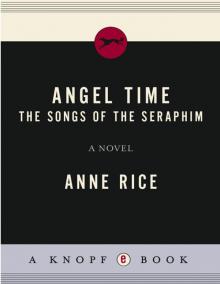 Angel Time
Angel Time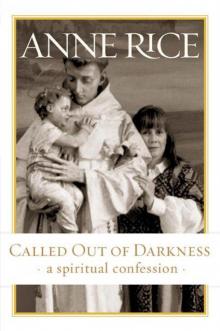 Called Out of Darkness: A Spiritual Confession
Called Out of Darkness: A Spiritual Confession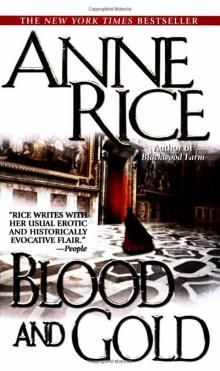 Blood And Gold
Blood And Gold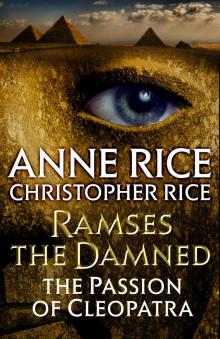 The Passion of Cleopatra
The Passion of Cleopatra Taltos
Taltos Exit to Eden
Exit to Eden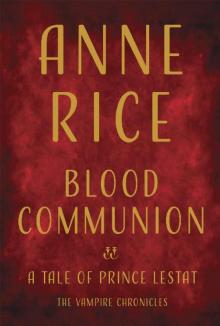 Blood Communion (The Vampire Chronicles #13)
Blood Communion (The Vampire Chronicles #13) The Wolf Gift
The Wolf Gift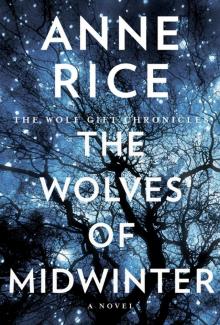 The Wolves of Midwinter
The Wolves of Midwinter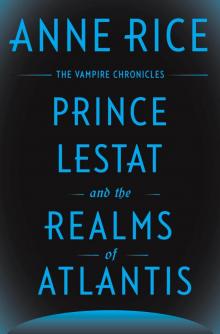 Prince Lestat and the Realms of Atlantis
Prince Lestat and the Realms of Atlantis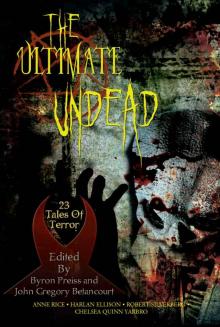 The Ultimate Undead
The Ultimate Undead The Vampire Lestat tvc-2
The Vampire Lestat tvc-2 The Road to Cana
The Road to Cana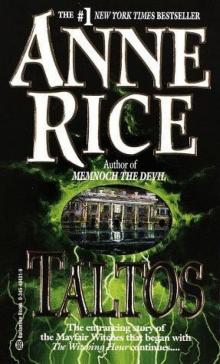 Taltos lotmw-3
Taltos lotmw-3 Merrick tvc-7
Merrick tvc-7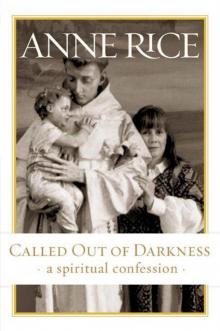 Called Out of Darkness
Called Out of Darkness Pandora - New Vampires 01
Pandora - New Vampires 01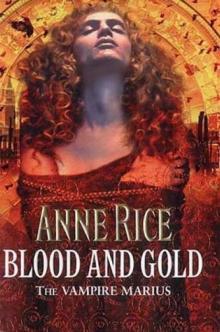 Bllod and Gold
Bllod and Gold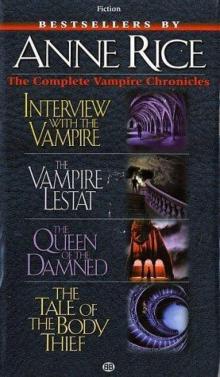 The Queen Of the Damned: Vampire Chronicles
The Queen Of the Damned: Vampire Chronicles The Sleeping Beauty Trilogy
The Sleeping Beauty Trilogy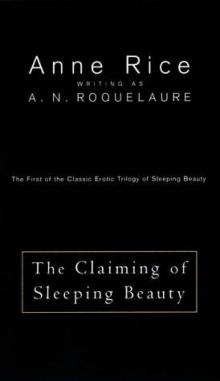 The Claiming of Sleeping Beauty b-1
The Claiming of Sleeping Beauty b-1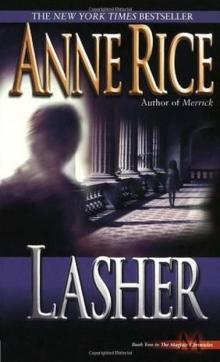 Lasher lotmw-2
Lasher lotmw-2 The Tale of the Body Thief tvc-4
The Tale of the Body Thief tvc-4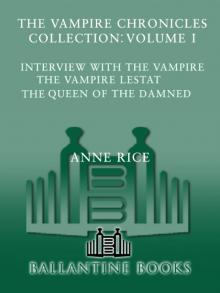 The Vampire Chronicles Collection
The Vampire Chronicles Collection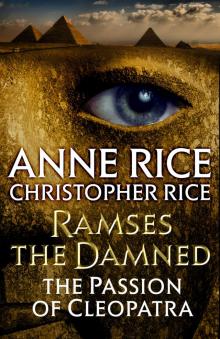 Ramses the Damned
Ramses the Damned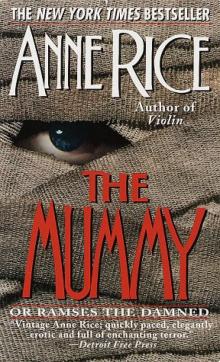 The Mummy - or Ramses the Damned
The Mummy - or Ramses the Damned Vittorio, The Vampire - New Vampires 02
Vittorio, The Vampire - New Vampires 02 The Vampire Armand tvc-6
The Vampire Armand tvc-6 Queen of the Damned tvc-3
Queen of the Damned tvc-3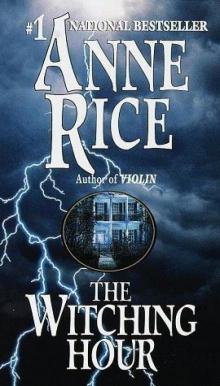 The witching hour lotmw-1
The witching hour lotmw-1 Feast of All Saints
Feast of All Saints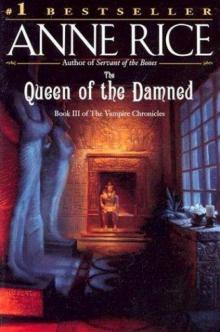 Queen of the Damned
Queen of the Damned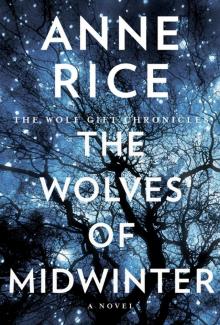 The Wolves of Midwinter twgc-2
The Wolves of Midwinter twgc-2 The Mummy
The Mummy Blood and Gold tvc-8
Blood and Gold tvc-8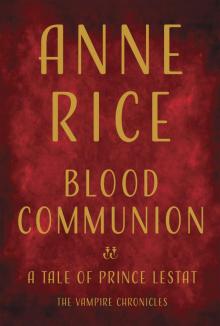 Blood Communion
Blood Communion Interview with the Vampire tvc-1
Interview with the Vampire tvc-1 Prince Lestat: The Vampire Chronicles
Prince Lestat: The Vampire Chronicles